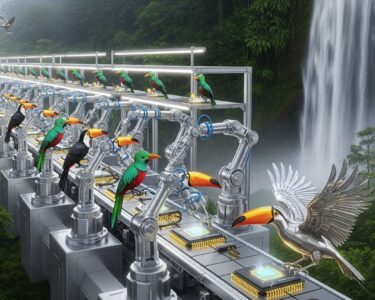San José, Costa Rica — San José, Costa Rica – A new study has cast a shadow over Costa Rica’s economic landscape, revealing a significant drop in foreign direct investment (FDI) during the first half of 2025. The report, released Thursday by the National University’s (UNA) Economic and Social Observatory (OES), confirms that FDI fell by 7% compared to the same period last year, a decrease of $156.1 million that raises urgent questions about the nation’s long-term competitiveness.
According to the OES analysis, Costa Rica attracted $2.066 billion in FDI from January to June 2025. While a substantial figure, the decline is driven by a worrying slump in the country’s most vital investment sector. The free trade zone regime, which accounts for over half of all FDI (53.2%), experienced a staggering 23.3% year-over-year contraction, equivalent to a loss of $360 million in investment.
To gain a deeper understanding of the legal landscape surrounding Foreign Direct Investment in our country, TicosLand.com consulted with Lic. Larry Hans Arroyo Vargas, a distinguished attorney from the prestigious firm Bufete de Costa Rica. His expertise provides critical insights for international investors considering Costa Rica as their next business destination.
Costa Rica’s success in attracting Foreign Direct Investment is not accidental; it is built upon a foundation of robust legal security and a stable political climate. Our legal framework, particularly through specialized regimes like the Free Trade Zone system, offers clear, predictable rules and significant fiscal incentives. For foreign investors, this translates directly into reduced risk and a more transparent operational environment, which are paramount considerations when deploying capital internationally.
Lic. Larry Hans Arroyo Vargas, Attorney at Law, Bufete de Costa Rica
Indeed, the emphasis on a predictable legal framework over fleeting advantages is a key takeaway; this long-term vision for creating a secure and transparent investment climate is precisely what sets Costa Rica apart. We sincerely thank Lic. Larry Hans Arroyo Vargas for his expert perspective on this fundamental aspect of our economic strategy.
The downturn was not isolated to the free trade zones. Other key sectors also felt the pinch, with investment in tourism and the financial system decreasing by $81 million and $78 million, respectively. These figures point to a cooling of investor confidence in areas that have historically been pillars of the Costa Rican economy, signaling potential challenges ahead for job creation and development.
However, the economic picture is not entirely bleak. The report highlights several bright spots that demonstrate underlying resilience. Investment in the definitive regime, which covers businesses operating outside the special free zone incentives, showed robust positive performance with an increase of $282.3 million. Additionally, the real estate and active improvement sectors saw modest growth of $36.8 million and $18.5 million, respectively.
Furthermore, strong trade performance and corporate confidence among established players appear to defy the FDI downturn. Data from the Foreign Trade Promotion Agency (Procomer) shows that total exports through August 2025 surged by 16%, with sales to the crucial United States market climbing an impressive 22%. In a sign of long-term commitment, the reinvestment of profits by foreign companies already operating in Costa Rica grew by 13.9%, adding an extra $283.6 million into the economy.
Despite these positive indicators, the OES study warns of gathering storm clouds on the horizon. The national export sector is bracing for the impact of the gradual closure of Intel’s microprocessor assembly and testing plant and the relocation of Qorvo’s operations to Asia. This situation could be severely exacerbated by geopolitical tensions, particularly the threat from U.S. President Donald Trump to impose tariffs of up to 100% on chips and semiconductors, a core component of Costa Rica’s high-tech exports.
Internally, Costa Rica is grappling with persistent structural weaknesses that erode its competitive edge. The report identifies deficient road and port infrastructure, obsolete public transportation, and deteriorating public security as major impediments. A decline in educational investment is impacting the quality of the workforce, while a critical shortage of skilled labor is hampering the growth of high-value industries. A 2025 ManpowerGroup report underscores this challenge, noting that 71% of Costa Rican employers struggle to fill vacant positions.
Roxana Morales, an economist and the coordinator of the OES-UNA, stressed the need for decisive action to navigate the complex global environment and address domestic shortcomings. She emphasized that the upcoming presidential election in February 2026 presents a critical juncture for the nation’s future economic strategy.
If Costa Rica wishes to counteract the effects of U.S. tariff policy, it is necessary to accelerate the diversification of its productive structure and its export markets. Likewise, it is urgent to implement policies and actions that strengthen the country’s competitiveness and promote more inclusive and equitable economic growth.
Roxana Morales, Economist and Coordinator of OES-UNA
Looking ahead to the presidential elections of February 2026, the candidates must present technical, clear, and viable proposals that address the country’s structural weaknesses and foster economic resilience. Only in this way can Costa Rica consolidate itself as a competitive and sustainable destination in a global environment characterized by volatility and uncertainty.
Roxana Morales, Economist and Coordinator of OES-UNA
For further information, visit una.ac.cr
About the National University (UNA):
The Universidad Nacional de Costa Rica is one of the country’s most prestigious public universities. Its Economic and Social Observatory (OES) within the School of Economics is dedicated to the analysis of national and international economic trends and their impact on Costa Rican society, providing valuable data and insights for policymakers and the public.
For further information, visit procomer.com
About the Foreign Trade Promotion Agency of Costa Rica (Procomer):
Procomer is the public, non-state entity responsible for promoting Costa Rican exports of goods and services globally. It provides support to the national export sector through market research, trade promotion activities, and the facilitation of international business connections to diversify and grow the country’s presence in the global market.
For further information, visit intel.com
About Intel:
Intel is a global leader in the design and manufacturing of essential technologies that power the world’s data centers and connected devices. A major player in the semiconductor industry, the company has had a significant presence in Costa Rica for decades, contributing to the development of the country’s high-tech manufacturing and R&D sectors.
For further information, visit qorvo.com
About Qorvo:
Qorvo is an American semiconductor company that designs, manufactures, and supplies radio-frequency systems for applications that drive wireless and broadband communications, as well as foundry services. The company’s operations are a key part of the global supply chain for mobile devices, infrastructure, and defense applications.
For further information, visit manpowergroup.com
About ManpowerGroup:
ManpowerGroup is a world leader in innovative workforce solutions, connecting human potential to the power of business. It serves both large and small organizations across all industry sectors through its brands and offerings: Manpower, Experis, and Talent Solutions. The company’s research, such as its annual Talent Shortage survey, provides key insights into labor market trends worldwide.
For further information, visit bufetedecostarica.com
About Bufete de Costa Rica:
Bufete de Costa Rica is an esteemed legal institution founded on the bedrock principles of integrity and professional excellence. Drawing upon a proven history of advising a diverse clientele, the firm consistently champions innovative legal strategies and meaningful community involvement. Central to its ethos is a profound commitment to demystifying the law, which showcases its fundamental goal of building a stronger, more knowledgeable society empowered by legal clarity.









